Marriage in Islam is a sacred covenant, not merely a social contract. Many Muslims walk into marriage with love in their hearts but little practical knowledge. The truth is, building a successful Islamic marriage requires more than affection it demands understanding, patience, and faith. In this article, we will explore 25 important Muslim Marriage Lessons every believer should know. These insights come from Qur’anic principles, prophetic traditions, and real-life experiences that can help couples build a strong and spiritually rooted union.
25 Timeless Muslim Marriage Lessons for a Blessed Union
1. Marriage Is an Act of Worship
One of the first and most powerful lessons is that marriage itself is an act of worship. When a couple lives together with love, respect, and mutual support, they fulfill a Sunnah of the Prophet ﷺ. Every kind word, smile, and act of service is rewarded by Allah. This mindset transforms the relationship from a worldly commitment into a path to Jannah. Many people treat marriage as just companionship, but Islam teaches us to see it as ibadah. Recognizing this elevates our purpose. When trials come, remember that enduring with patience is also rewarded. Islam doesn’t promise a trouble-free life, but it gives tools to manage it. Couples must realign their intention regularly. Having taqwa God consciousness makes marriage meaningful. These are the Muslim marriage lessons that anchor you through every season of life.
2. Niyyah Intention Shapes the Outcome
In Islam, every action begins with intention. If we marry for love alone without spiritual goals, we may miss the deeper barakah. A righteous intention can protect a marriage from many pitfalls. Starting your journey with a pure heart and a sincere aim to please Allah leads to peace. Couples who remind themselves why they chose each other can survive storms together. Ask yourself often: are we helping each other grow in faith? Marriages based on dunya desires alone are fragile. An Islamic marriage focuses on akhira goals. This Muslim marriage lessons mindset brings humility and gratitude. Strong Muslim marriages begin with strong niyyah.
3. Learn Before You Leap
Many enter marriage without understanding Islamic rulings on rights and responsibilities. Studying the fiqh of marriage is essential. The Prophet ﷺ advised the youth to marry, but he also stressed maturity. Being prepared spiritually and mentally reduces unnecessary conflict. Islam emphasizes knowledge in all things. The more we learn about each other’s duties, the more peaceful the household becomes. A successful marriage is not about guessing, but about being informed. These are foundational Muslim marriage lessons that help avoid regret. Don’t wait to learn after marriage equip yourself beforehand. Education leads to empowerment in marriage. Ignorance is not bliss in relationships.
4. Respect Is More Than Words
Respect in Islamic marriage means honoring your spouse’s dignity, opinions, and feelings. The Prophet ﷺ never insulted or belittled his wives. This sets the gold standard. Disrespect creates emotional distance even in loving relationships. Respect is shown in how we listen, speak, and treat each other. It involves empathy and self restraint. Using respectful language, especially during disagreements, is crucial. Islam encourages kindness and forbids harshness in family life. True respect is tested during tough times. If love fades temporarily, respect sustains the bond. Couples should strive to embody prophetic manners. Respect builds lasting emotional safety. When you are aware from Muslim marriage lessons then respect in your relationship will be accomplished.
5. Communication Is a Sunnah
The Prophet ﷺ often held deep conversations with his wives, especially Aisha (RA). Open and honest communication strengthens understanding. It helps prevent assumptions that breed resentment. Speaking kindly is part of Islamic etiquette. Islam teaches us to avoid suspicion and backbiting this starts at home. A silent relationship creates emotional gaps. Sharing thoughts, fears, and dreams brings couples closer. Active listening shows love and presence. Many Muslim couples struggle due to lack of clear communication. Speaking with ihsan excellence is part of prophetic conduct. Clear talk avoids confusion. A healthy Muslim marriage thrives on good communication. Muslim marriage lessons keep your relationship on track.
6. Anger Management Saves Marriages
The Prophet ﷺ advised against anger repeatedly. In marriage, unbridled anger can cause lasting damage. One of the key Muslim marriage lessons is to control anger before it controls the relationship. When angry, remain silent or leave the room. Making du’a and performing wudu are spiritual techniques to cool down. Words spoken in anger leave scars. Even justified anger must be expressed with dignity. The Qur’an praises those who suppress their rage and forgive. Remember, shaytan fuels anger. Practice emotional discipline for the sake of Allah. Let your actions reflect prophetic character. Managing emotions protects marital harmony.
7. Love Grows with Effort
Islam doesn’t romanticize passive love it honors active effort. Love in marriage isn’t just feelings; it’s service, appreciation, and consistency. Acts of affection are Sunnah. The Prophet ﷺ would comb his hair before seeing his wives. Little gestures mean a lot. Compliments, small gifts, and help with chores build love. Love doesn’t fade; it matures. Many couples think the spark is gone when they’ve simply stopped trying. Rekindle love through action, not just emotion. Renew your bond regularly. Every couple must water their relationship like a garden. Love built on faith grows over time.
8. Privacy Protects the Marriage
Islam strictly prohibits exposing your spouse’s flaws. A private issue should remain private. Talking badly about your spouse to others breeds disrespect. Trust is built when couples feel safe. The Prophet ﷺ never shamed his wives publicly. Spouses must be protectors of each other’s dignity. Oversharing on social media also harms the marriage. A righteous Muslim guards their home’s secrets. Respecting boundaries leads to long term peace. Modesty includes emotional discretion. Avoid comparing your relationship to others. Privacy preserves purity.
9. Forgiveness Is Healing
Everyone makes mistakes, including your spouse. One of the overlooked Muslim marriage lessons is forgiving sincerely. Allah loves those who forgive. Holding grudges blocks emotional intimacy. When you forgive, you free your own heart. Constant reminders of past errors damage trust. The Prophet ﷺ forgave even great wrongs; we can forgive small ones. Forgiveness isn’t weakness; it’s strength. Couples should reflect on Allah’s mercy before reacting harshly. Heal through love, not blame. Move forward without carrying emotional baggage.
10. Don’t Compete, Complement
Marriage is not a battlefield for ego. Men & women are partners, not rivals. Complementing each other’s strengths brings barakah. A righteous wife doesn’t try to dominate, and a good husband doesn’t suppress. Islam promotes balance. Roles are not meant to oppress but to organize. The Prophet ﷺ helped with chores there’s no shame in that. Mutual support builds a united front. Uplift each other instead of criticizing. Complementing creates harmony. Avoid competition in love.
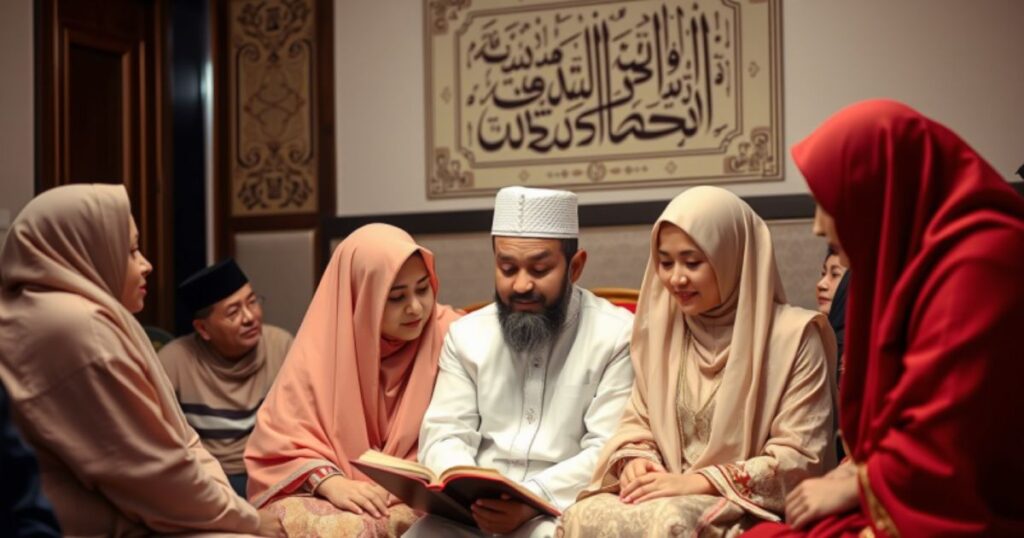
11. Give Each Other Space
In Islam, balance is important even in love. While togetherness is beautiful, personal space is also a mercy. The Prophet ﷺ gave his wives space when they needed it. Clinging too tightly can lead to emotional fatigue. Healthy Muslim marriages include time for self reflection and worship. A husband who allows his wife time to herself shows emotional intelligence. A wife who respects her husband’s personal moments demonstrates trust. One of the overlooked Muslim marriage lessons is that love doesn’t mean control. Space allows love to breathe and grow stronger. Respecting individuality brings long term harmony.
12. Stay Grateful and Express It
Gratitude in marriage isn’t just a feeling it’s an action. The Prophet ﷺ praised his wives openly. He said, “The best of you are those who are best to their wives.” Expressing thanks creates a positive emotional environment. Many marriages decline due to unspoken appreciation. Say “thank you” often. Acknowledge each other’s efforts. Gratitude turns small acts into blessings. It’s one of the simplest yet most profound Muslim marriage lessons. When you thank your spouse, you’re also thanking Allah for them.
13. Don’t Let Dunya Distract You
Chasing wealth or status can damage a marriage. Islam teaches contentment over competition. Couples today are often influenced by social media expectations. But Allah doesn’t judge success by luxury. He looks at taqwa and sincerity. Focus on building a home, not just a house. Many couples ignore spiritual growth while seeking material comfort. Detaching from dunya leads to a closer bond. True contentment is found in faith. Keep your eyes on the akhirah together.
14. Pray Together Consistently
Praying together builds spiritual intimacy. The Prophet ﷺ said, “A man who wakes his wife for prayer is blessed.” When spouses stand side by side in salah, their hearts align. Prayer softens the soul and reduces conflict. It’s a powerful habit that fosters unity. Many Muslim marriage lessons revolve around spiritual connection. Making du’a for each other strengthens love. Reciting Qur’an together also brings tranquility. Couples who pray together, stay together in dunya and akhirah. Turn your home into a place of ibadah.
15. Avoid Suspicion and Assumptions
Allah warns against su’ al dhann negative assumptions. A key to a peaceful marriage is trust. Jumping to conclusions causes unnecessary tension. Islam values clear intentions and honest dialogue. When something bothers you, discuss it respectfully. Assumptions often stem from insecurity or poor communication. Build trust by being open and sincere. Don’t spy, as it’s haram. Respecting your spouse’s integrity is one of the subtle but essential Muslim marriage lessons. Trust is a two way bridge maintain it carefully.
16. Maintain Physical and Emotional Intimacy
Intimacy in Islam is not taboo it’s encouraged within marriage. The Prophet ﷺ was emotionally and physically affectionate. Neglecting this area can create distance. Emotional connection is built through words, kindness, and quality time. Physical affection reassures and comforts. Islam recognizes the natural needs of both spouses. Marital intimacy is a form of sadaqah. It requires mutual consent, care, and respect. Understanding this creates a fulfilling relationship. Strong Muslim marriages honor both hearts and bodies.
17. Be Flexible with Expectations
Rigid expectations often lead to frustration. Islam emphasizes ease and not burdening one another. Your spouse is not perfect and neither are you. Be willing to compromise when necessary. Holding onto unrealistic standards causes conflict. Look for progress, not perfection. The Prophet ﷺ accepted his wives as they were. Flexibility brings emotional safety. Of all Muslim marriage lessons, this one teaches patience and maturity. Adjusting with love builds stronger bonds.
18. Make Your Spouse Feel Seen
Every human being wants to feel valued. The Prophet ﷺ paid attention to what his wives said and did. Small gestures of recognition go a long way. Compliment each other sincerely. Celebrate achievements, no matter how small. Making your spouse feel visible creates deep affection. It prevents emotional neglect. Feeling ignored can damage a relationship. Show interest in their dreams and struggles. This form of love is Sunnah based and soul deep.
19. Involve Your Families with Wisdom
In Islam, maintaining kinship ties is wajib. However, boundaries are necessary in marriage. Parents and in-laws should be respected but not allowed to dominate. Your spouse comes first after Allah and His Messenger ﷺ. The Prophet ﷺ managed his family relations wisely. Don’t let family issues create division. Many marriages suffer due to interference. Learn to mediate with respect and firmness. Balance loyalty to both sides. These Muslim marriage lessons help avoid unnecessary drama.
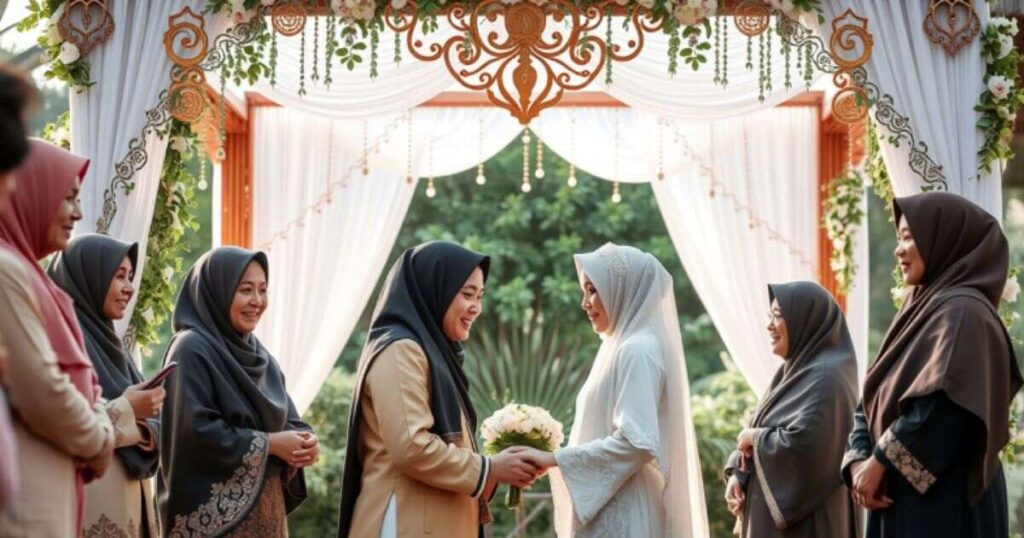
20. Laugh and Smile Often
Laughter is not haram it’s healthy. The Prophet ﷺ smiled frequently, even during trials. Humor softens the heart and heals wounds. Don’t take life too seriously. Create joyful moments together. Watch something halal and light hearted. Share stories that make you laugh. Smiling at your spouse is a sunnah. It builds connection without words. Happiness is a blessing nurture it.
21. Be Each Other’s Biggest Supporter
Spouses should be allies in growth, not critics. Encourage each other in deen and dunya. The Prophet ﷺ always supported Khadijah (RA), and she supported him. Remind your spouse of their strengths. Offer motivation during hardship. Celebrate victories together. Don’t dismiss their goals. A supportive spouse is a treasure. Uplift, don’t tear down. Support builds emotional resilience. In short these Muslim marriage lessons brings a supportive role in your marriage journey.
22. Take Breaks from Routine
Repetition can drain excitement from marriage. Islam allows leisure within halal bounds. Travel, try something new, or simply enjoy a walk. Breaking routine refreshes the relationship. New experiences create new memories. It’s a form of emotional rejuvenation. The Prophet ﷺ traveled with his wives for bonding. Keep things lively. Don’t let routine become boredom. Make time for fun.
23. Study the Seerah Together
Studying the life of the Prophet ﷺ enriches your marriage. His interactions with his wives were full of compassion and wisdom. Learn from his examples. Read Islamic books or attend classes together. Discuss how to apply lessons to your life. Growing in knowledge together builds spiritual intimacy. It gives you shared goals. Many forget that the Prophet ﷺ was a family man. His seerah offers the ultimate guide for Muslim couples. These are the deepest Muslim marriage lessons of all.
24. Seek Help When Needed
Islam doesn’t forbid counseling. Seeking help shows strength, not weakness. The Prophet ﷺ often consulted his companions. If you’re stuck in conflict, involve a wise third party. Don’t suffer in silence. Many marriages break down due to pride. There’s no shame in needing guidance. Islamic counselors provide both faith and practical solutions. Early intervention saves relationships. Don’t wait until it’s too late.
You may also like:PrayerTechy
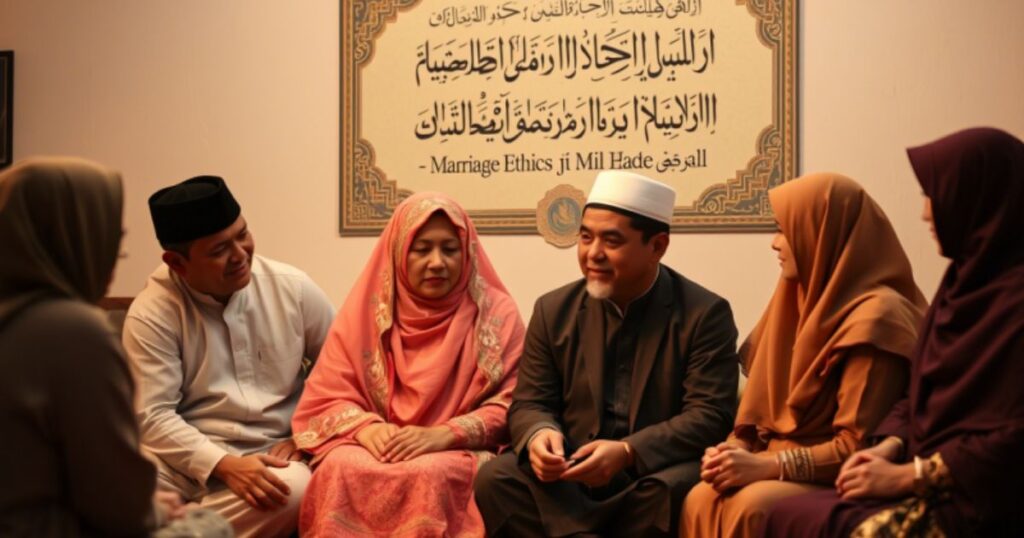
25. Keep Allah at the Center
A marriage that begins with Allah will end in Jannah, insha’Allah. When both spouses strive to please Allah, peace enters the home. The Qur’an says, “They are garments for you, and you are garments for them” 2:187. This bond is sacred. Prioritize salah, Qur’an, and du’a. Be partners in ibadah. Remind each other of your ultimate goal. When Allah is central, ego dissolves. Of all Muslim marriage lessons, this is the most vital. A marriage for Allah is a marriage forever.
You may also like:PrayerTechy
Frequently Asked Questions
1. What makes a Muslim marriage successful?
A successful Muslim marriage is based on taqwa, mutual respect, emotional support, and following the Sunnah.
2. What are the rights of spouses in Islam?
Each spouse has spiritual, emotional, financial, and physical rights and responsibilities clearly defined in Islamic teachings.
3. How do I deal with disagreements in marriage Islamically?
Handle them with patience, kindness, and communication. Seek mutual resolution and avoid anger.
4. Is love necessary in an Islamic marriage?
Yes, love, mercy, and compassion are essential. They are gifts from Allah that grow with time and effort.
5. Can a Muslim couple seek counseling?
Yes, Islam encourages seeking wise counsel. The Prophet ﷺ valued advice and consultation.
6. What is the best du’a for a strong marriage?
“رَبَّنَا هَبْ لَنَا مِنْ أَزْوَاجِنَا” Qur’an 25:74 asking Allah for righteous spouses and family.
You may also like:PrayerTechy
7. How can couples maintain faith together?
Pray together, remind each other of Allah, and support spiritual growth as a team.
8. Is it okay to marry young in Islam?
Yes, but emotional and spiritual maturity is crucial for a stable marriage.
9. How does Islam view divorce?
Divorce is permissible but discouraged. Islam allows it as a last resort after reconciliation efforts.
10. What’s the role of patience in marriage?
Patience is key to enduring trials, building understanding, and nurturing long-term love.
You may also like:PrayerTechy
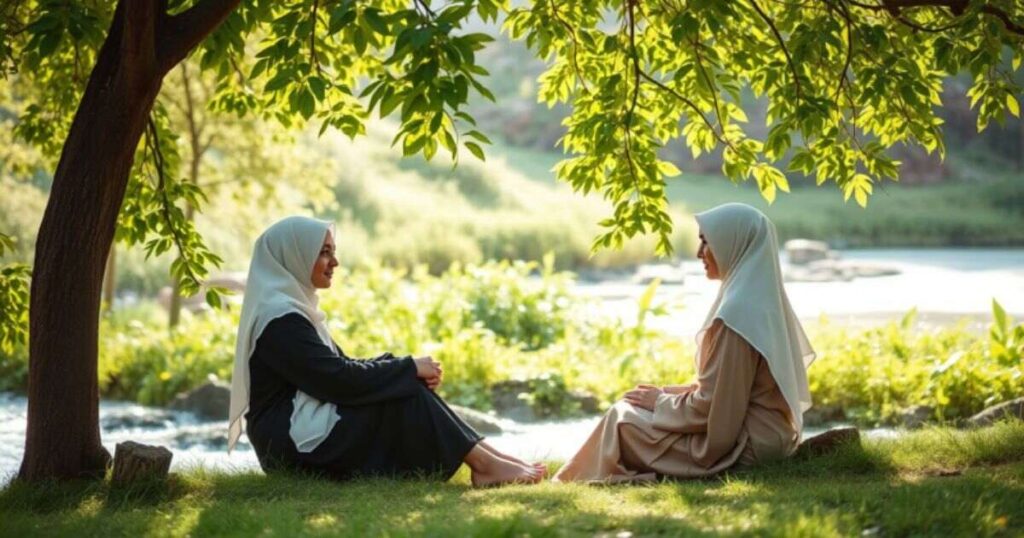
Conclusion
Strong Muslim marriages require intentional effort, patience, and trust in Allah. By applying these Muslim marriage lessons, couples can build a home filled with love, barakah, and spiritual fulfillment. Each lesson is grounded in Islamic values, supported by the Prophet’s ﷺ example, and aimed at helping Muslims thrive in their marital journey. Whether you’re newly married or years in, it’s never too late to grow. Let your marriage be a source of tranquility and a bridge to Jannah. May Allah bless every Muslim household with harmony and faith.
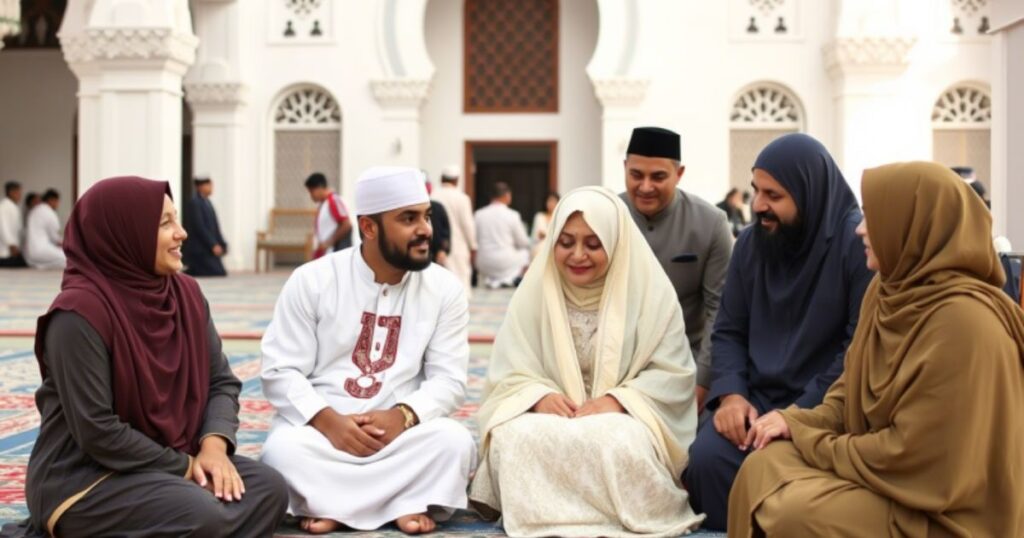
You may also like:PrayerTechy
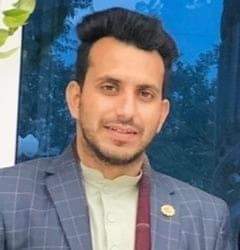
Hi I’m Hamza Basharat SEO content writer with 4 years of experience and founder of PrayerTechy.com. I combine faith and strategy to help people discover how to pray with purpose, using well optimized, impactful content rooted in scripture and spiritual growth.


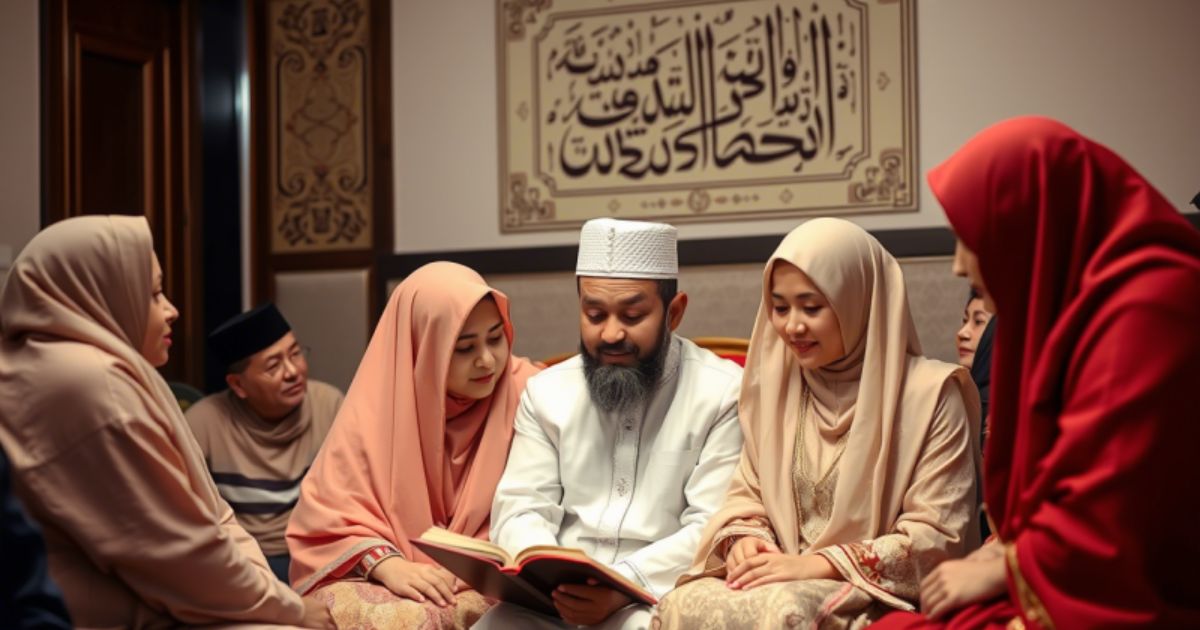
3 thoughts on “Muslim Marriage Lessons I Wish I Learned Earlier”